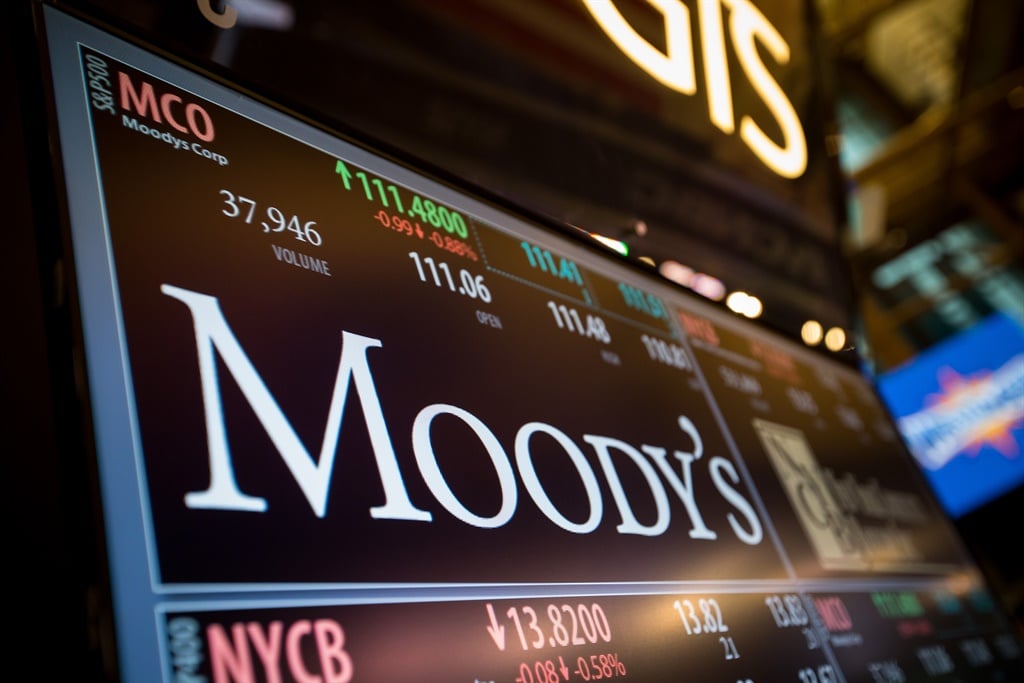
On Saturday, March 28, South Africans woke up to the dark clouds gathered by Moody’s Investors Service’s downgrade of the country’s economy to “junk” status.
Moody’s joins S&P Global and Fitch Ratings, both of which downgraded our country early in 2017.
This is not a good time for such news, especially when the world is grappling, largely in the dark, in its attempt to contain the ever-spreading Covid-19 coronavirus. Moody’s delivered the news as South Africa braced for the second day of lockdown.
Our economy has been largely stagnant, so the downgrade was not unexpected.
It is not just South Africa; one in every four human beings in the world is on lockdown, with almost all world governments sharply focused on humanitarian economics rather than fiscal stability – in other terms, on the short-term response to the sudden crisis of the pandemic.
In such times as these, the immediate instinct is to cushion the most vulnerable in society.
Notwithstanding, the world should brace for the medium- to long-term impact of the Covid-19 pandemic, which will inevitably see rising unemployment, folding of businesses, deepening poverty and increasing inequality on a global scale.
We do not know the real extent of this sort of socioeconomic apocalypse.
On the same day that Moody’s downgraded South Africa’s economy, the head of the International Monetary Fund (IMF), Kristalina Georgieva, admitted that the world economy was already in a recession that was as bad or worse than in 2009.
Georgieva especially warned that emerging markets faced possible bankruptcies and debt defaults given the fall in demand for exports and falling commodity prices, along with capital outflows and depleting internal reserves.
The impact will be most felt in African countries if we consider that 89% of all of the sub-Saharan countries are commodity-dependent.
And, going by the World Bank’s definition of low-income countries as those with a gross national income of $1 045 (R19 055), almost all low-income countries (except for Afghanistan, Cambodia, Haiti and Nepal) are in sub-Saharan Africa.
The possibility of such catastrophe inspires us to look for apocalyptic explanations.
In the Christian Bible, the book of Revelation – chapter 6, verses 7 and 8 – narrates how the third (black) horse of the Apocalypse leads an economic onslaught around the world in preparation for the end of the world.
The black horse is first revealed, after which the economic catastrophe follows. If we apply this analogy to the current global pandemic, the scenario fits developed markets.
Read: What the Moody’s downgrade means for SA
The economic shake-ups have followed the black horse (the landing of the pandemic).
The emerging markets (and the rest of the developing world) are witnessing economic storms in anticipation of the black horse.
Thus far, even before the pandemic arrives in its might, currencies in developing countries are in free fall, and about half of all countries on Earth (81) have either requested or enquired about the IMF emergency finance facility, 31 of these being middle-income countries.
Back to South Africa. The downgrading of the sovereign debt rating to “junk” status by Moody’s has been consequential, considering that President Cyril Ramaphosa has now agreed to structural reforms, invoking a “Hallelujah” from Minister of Finance Tito Mboweni.
Whether this is in preparation for securing broader IMF funding is an open question, for now.
Typically, structural reforms focus on the supply side of the economy, including relaxing regulatory measures in the labour market (labour market reform), reforming the public sector and reforming product markets (including undertaking privatisation programmes).
Structural reforms create social frictions in the short term and, therefore, even after the pandemic, we should prepare for the second wave of economic crisis after the current economic dust, caused by Covid-19, settles.
President Ramaphosa prefers being a general during peace times, an incremental leader with less proclivity to drama and disruptive disasters such as Covid-19 or anything similar.
But the state of the nation at the moment, which is fundamentally different from what he told the nation in February, requires a disruptive heavy lift rather than incremental change.
It goes without saying that drastic actions and coordination are required during these extraordinary times.
Below I make some propositions on how South Africa can begin to respond to the ongoing economic turbulence.
First, the private sector has an opportunity to improve competitive advantage through focusing on technological innovations, challenging as this might be.
Historically, economic downturns have produced or fundamentally transformed the competitiveness of global companies such as Nokia, Microsoft, Samsung or Google.
South African companies will do well to focus what remains of their budgets on research and development of new products and services or new delivery mechanisms.
Second, as the government prepares to lay off public servants while businesses expect to downsize, a public-private partnership should be forged to provide education and training for the laid-off labour force.
This targeted training could either lead to mass innovations or re-employment of unemployed labour, or both.
Third, the government should consider increasing its budget for research and development to balance out the inevitable decline of such corporate spending.
This option should be bundled with venture capital support of small, medium and micro enterprises, especially those willing to move to technological platforms.
Musyoka is a development economist (associate researcher) at the University of Pretoria
 | ||||||||||||||||||||||||||
Get in touchCity Press | ||||||||||||||||||||||||||
| ||||||||||||||||||||||||||
| Rise above the clutter | Choose your news | City Press in your inbox | ||||||||||||||||||||||||||
| City Press is an agenda-setting South African news brand that publishes across platforms. Its flagship print edition is distributed on a Sunday. |




 Publications
Publications
 Partners
Partners








